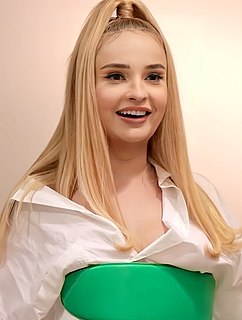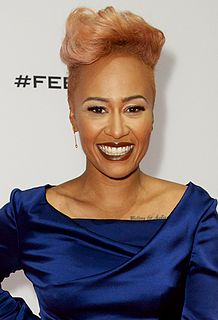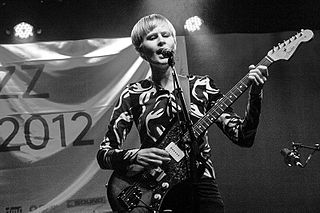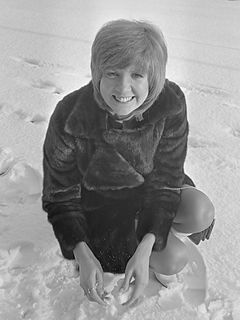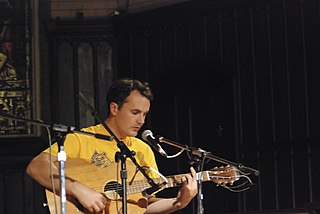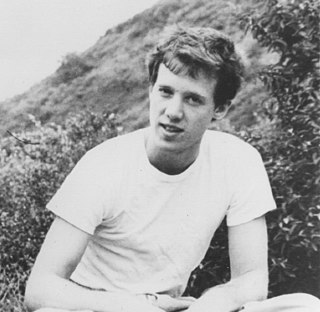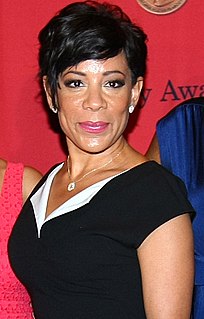A Quote by Kim Petras
People started recording my songs. Later, I was offered songwriter contracts. And then, finally, I could take the time to work on my own project. I worked hard for this all by myself.
Related Quotes
I built a reputation as a songwriter in the industry before my own hits. People were used to coming to me for songs. There were songs like 'Clown' and 'Mountains' that were my songs that I wanted to keep. But the record labels saw me as a songwriter. It was hard to get people to believe in me as an artist.
I saw Damien Rice in Dublin when I was 13, and that inspired me to want to pursue being a songwriter... I practised relentlessly and started recording my own EPs. At 16 I moved to London and played any gigs I could, selling CDs from my rucksack to fund recording the next, and it snowballed from there.
I saw Damien Rice in Dublin when I was 13, and that inspired me to want to pursue being a songwriter... I practised relentlessly and started recording my own EPs. At 16, I moved to London and played any gigs I could, selling CDs from my rucksack to fund recording the next, and it snowballed from there.
I didn't start writing songs, honestly, until I started making my album. I was always doing poetry, but I never thought I could write songs. I discouraged myself and thought it was so hard. But starting this process and learning just what it is to be a songwriter and performer taught me that you don't have to feel discouraged about anything.
I'm more critical of my songwriting than anybody, but I've worked really hard in the last five to 10 years to improve. I didn't take it all that seriously when I started. It was a little bit of a stigma to being a songwriter or a folkie back then. I did a lot of send-ups of sensitive singer-songwriter stuff when I was starting out, which limited my development as a songwriter in a way. I wasn't really fully given license to explore that until the mid-90s. I'm still working on it; I'm a little bit of a late bloomer.
What surprises me is-even though discrimination against women and racial discrimination still exist, they have improved a lot, especially among artists. And just when I felt I could finally take a break, I encounter the age discrimination. I turned 72 and started noticing a drastic difference in people's attitudes. I started with racism and sexism in the beginning and fought them so hard and was finally ready to relax. Then, here comes ageism, and I feel like, "Give me a break!"
I believe in God. I got down on my knees and I said, 'I get it. If this isn't for me, then it isn't for me.' And then a week later, I started working. I worked on 'The Following,' I worked on 'Elementary,' I worked on a pilot and then I got 'Orange.' So literally from that moment of deep surrender, that's when you're blessed.
